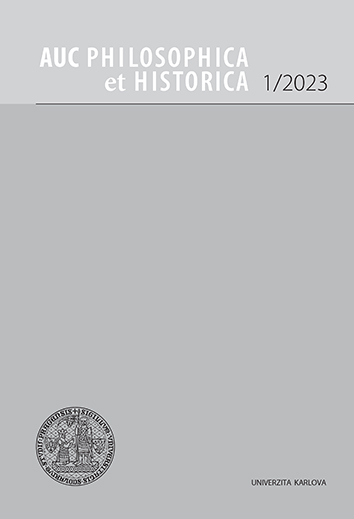AUC Philosophica et Historica (Acta Universitatis Carolinae Philosophica et Historica) is a multidisciplinary academic journal focused on the humanities with more than 50 years of tradition.
The journal is indexed in CEEOL, DOAJ, and EBSCO.
AUC PHILOSOPHICA ET HISTORICA, Vol 2009 No 1 (2009), 121–135
Faktory volby dopravního prostředku – podstatný aspekt proměny současných měst
Markéta Braun Kohlová
DOI: https://doi.org/10.14712/24647055.2018.16
published online: 12. 01. 2018
abstract
The aim of the paper is to answer questions related to the explanation of the travel mode choice used by people for regular commuting and what role in their decision making can be attributed to location of their residence, i.e. how the travel mode choice differs in case of traditional urban residents and suburban residents. The reason why to study everyday commuting is the fact that people currently living in western cities spend a lot of time and money commuting and the aggregate of everyday individual mobility generates a significant environmental impact. I study the travel mode choice from two perspectives: a) statistical and b) behavioural. Using the statistical analysis I explain the travel mode choice based on situational constraints and differences between social groups. The statistical analysis, however, is unable to explain how the situational constraints lead to different behaviour in different individuals and also the part of behaviour that cannot be explained using the constraints, thus I add a qualitative study. Summarizing both types of findings, I conclude that the everyday travel mode choice depends to a large extent on constraints that cannot be influenced by individuals: i) the amount of time and money available to the individual, ii) public transport services, civic facilities in the place of residence, and iii) required mobility for job related reasons. In the qualitative study I focus on what type of residence people prefer. Looking into preferred characteristics of people’s place of residence and actual travel behaviour I generate general classification of rationality related to the travel mode choice: 1) travel mode choice rationality based on constraints, 2) a consistent lifestyle including travel mode as well as nature of residence choice, and 3) the travel mode choice as an unreflected habit. According to the three types of rationality we can identify different factors of individual transport development: a) differences in the nature of individual travel modes and their attractiveness related to individual economic and professional constraints, b) real willingness of many people to live in residential locations with a lower accessibility and lower level of services, and c) a habit to drive a car automatically regardless of conditions as a natural part of habitus of economic middle and upper classes. Differentiation of these factors leads to different implications when considering possibilities of overturning the current increasing trend of car transport. Firstly, it is a question of price or other regulation changing attractiveness of the individual alternatives. Secondly, there are factors related to preference of suburban lifestyle including not only normative and cultural patterns but also significant differences in real estate prices in internal cities and suburban locations. In the last case of the habit to use a car regardless of available alternatives as a part of habitus of economic middle and upper classes the discussion about possible changes is the most demanding. However, this study shows that majority of people make their travel mode choices taking into account real possibilities and constraints and thus that it is possible to influence their behaviour through economic and other types of regulation.
